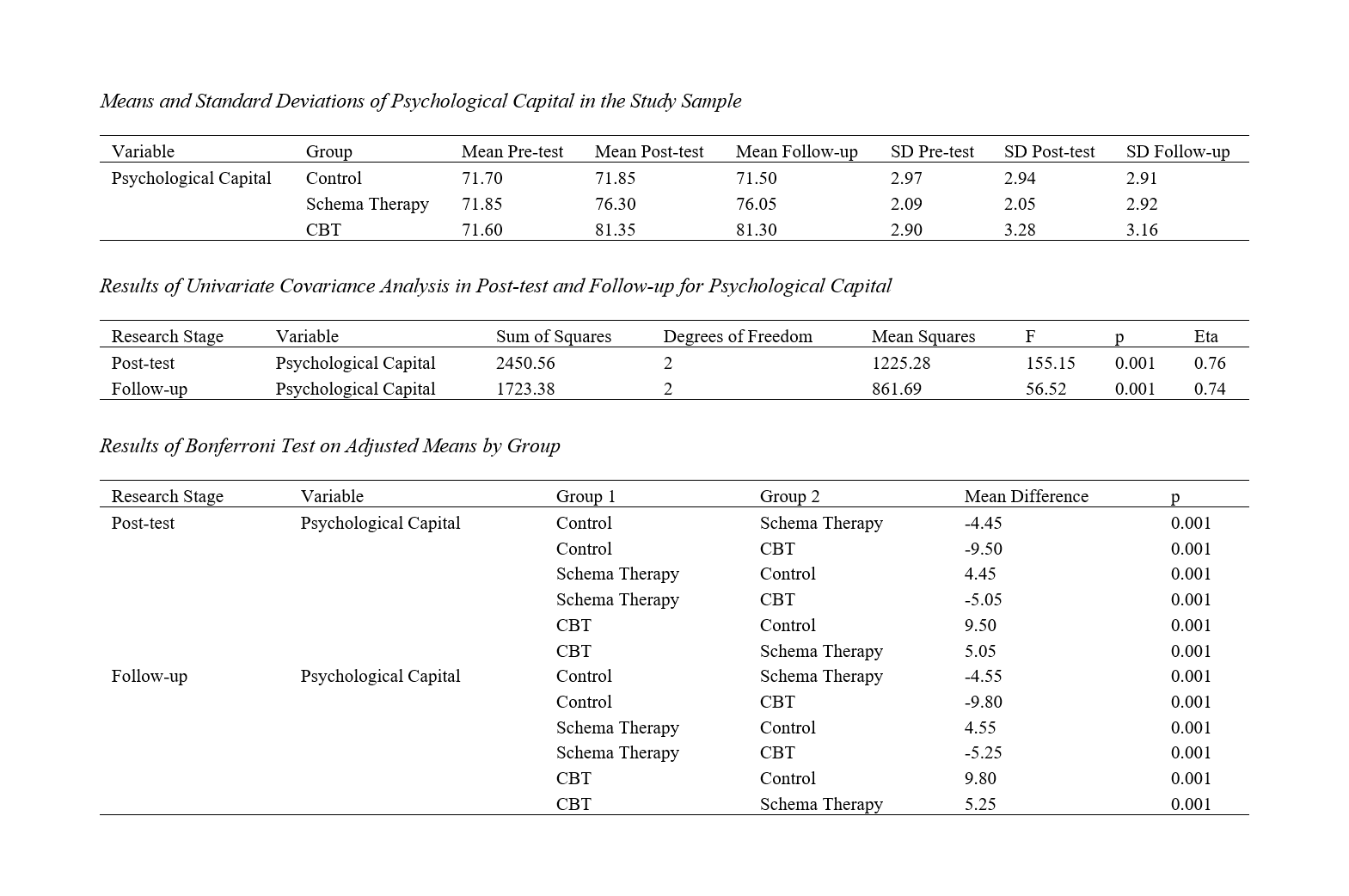Comparison of the Effectiveness of Cognitive-Behavioral Therapy and Schema Therapy on Psychological Capital in Women Affected by Marital Infidelity
Keywords:
Cognitive-Behavioral Therapy, Schema Therapy, Psychological Capital, Marital InfidelityAbstract
Objective: The present study aimed to compare the effectiveness of cognitive-behavioral therapy (CBT) and schema therapy on psychological capital in women affected by marital infidelity.
Methods: This research was a quasi-experimental study with a pre-test, post-test, and follow-up design with a control group. The statistical population included all women dealing with the issue of marital infidelity of their spouses who referred to counseling centers in Tehran in 2022 and expressed their readiness to participate in the treatment program in response to the researcher's call. From this population, 45 subjects were selected using purposive sampling and randomly assigned to three equal groups of 15 (two experimental groups and one control group). The Psychological Capital Questionnaire by Luthans et al. (2007) was used to collect data. Data analysis was performed using SPSS software and multivariate analysis of covariance (MANCOVA) tests.
Findings: The results indicated that both schema therapy and cognitive-behavioral therapy interventions produced a significant difference in psychological capital in women affected by marital infidelity at the post-test and follow-up stages compared to the control group (p ≤ 0.001).
Conclusion: The results showed that cognitive-behavioral therapy had a greater impact on psychological capital in women affected by marital infidelity compared to schema therapy.
Downloads

Downloads
Additional Files
Published
Issue
Section
License

This work is licensed under a Creative Commons Attribution-NonCommercial 4.0 International License.




















